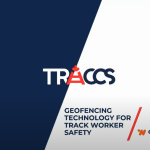How Communication Is Redefining Productivity
Effective communication is critical in construction projects.
Construction projects involve a large number of people working together to complete a complex and often time-sensitive task. Without good communication, it can be difficult for the project team to coordinate their efforts, stay on track and redefine productivity.

What does “good” look like?
Effective communication is essential in all aspects of business and across sectors, but it is particularly important in the construction industry. It enables all the stakeholders involved in a project to understand the project goals, timelines, and expectations, and also to identify and resolve issues quickly and efficiently whilst maintaining productivity.
Effective communication in construction requires the following:
-
- Clarity: all parties should understand the message and what action is required.
- Timeliness: communication should be delivered when it is needed and in a timely manner.
- Completeness: all relevant information should be provided.
- Consistency: the same message should be delivered consistently to all parties.
- Openness: parties should be willing to listen and respond to feedback.
- Tailored to the audience: the message should be tailored to the audience so that it is understood.
How Technology Can Transform Communication
To achieve effective communication, forward-thinking construction companies, looking for differentiation and improved productivity and profitability are turning to technology and connectivity, embedding digital working practices into their operations.
This platform change is complimented with process transformation, involving the implementation of cloud project management software and the adoption of Building Information Modeling (BIM.)
This digital representation of a building or infrastructure project can be used to plan, design, construct, and manage the facility throughout its lifecycle. BIM allows for better collaboration and communication among team members and can help to identify and resolve issues before they become problems – but relies on robust, resilient and high-capacity connectivity networks to handle the huge amount of data transfer required.
Missing a Trick…
In the UK construction industry, the adoption of digital technologies has been slower compared to other industries, but it has been increasing in recent years.
-
- According to a report by Arcadis, the UK construction industry lags behind other industries in terms of digital adoption, with just 4% of companies considered “digitally mature.”
- A survey by the Construction Industry Council found that only 24% of UK construction companies are using Building Information Modelling (BIM).>
- According to a report by the Construction Industry Training Board (CITB), the use of digital tools in the construction industry will increase by 30% in the next five years.

Reaping the Rewards
There are several ways in which good communication benefits construction projects:
Construction projects involve a large number of people working together, including architects, engineers, contractors, and subcontractors. According to a report by the International Construction Market Survey, delays are the most common problem faced by construction projects, with 60% of projects experiencing some form of delay. Good communication is essential for coordinating the work of these different groups and ensuring that everyone is on the same page to minimise the threat of delays.
One of the major challenges with every construction project can be summarised as “time is money” and when projects are often costed and planned keenly with ambitious milestones, the cost of dead time on site can be huge. A survey of construction professionals by KPMG found that 61% of respondents identified cost overruns as a significant challenge in their projects. Most construction projects encounter problems and challenges that need to be addressed in a timely and effective manner, so good communication can help the project team identify and resolve problems quickly, minimizing delays and disruptions and maximising productivity.
A study by the Occupational Safety and Health Administration (OSHA) found that the construction industry has a higher rate of fatal injuries than any other industry, with an average of 20 deaths per week in the U.S. In the UK, there were 30 fatal injuries to workers in the year 2021/22 according to RIDDOR as well as on average 59000 severe injuries per year.
Poor communication can lead to misunderstandings and errors that can increase the risk of accidents and injuries on construction sites. Good communication can help prevent accidents and injuries by ensuring that everyone is aware of their responsibilities and the potential risks involved in their work.
Furthermore, we can look past the collaborative human-to-human communication concept and toward connected construction in terms of connected autonomous plant machinery, Internet of Things (IoT) sensors and many more innovations to help minimise risk on construction sites. Technologies such as geofencing allow for strict virtual perimeters to be created, allowing only specific workers, in configured densities at designated times onto site – alerting site staff if any of these rules are broken.
According to a report by the Construction Industry Institute, poor quality control is a major contributor to construction project delays and cost overruns, with an estimated 10-20% of construction costs being attributed to rework caused by poor quality control.
Good communication is important for ensuring that the project is completed to the required standards and specifications. This includes communicating changes in the project scope and ensuring that everyone is aware of the quality standards that need to be met.
What is the Solution?
As we’ve seen from the above, good communication is essential for the success of any construction project and the adoption of technology and innovation in the industry can help to facilitate this. Innovation can improve productivity, safety and quality, and increase efficiency by connecting large, diverse workforces.
By ensuring that everyone is on the same page and working together effectively, the project team can complete the project efficiently and effectively, meeting the needs of the client and stakeholders.

Connectivity is the Key
We may be biased, but we genuinely believe that connectivity is the fourth utility and absolutely essential on the modern construction site. In the UK, connectivity in construction is an area that has been growing in recent years, but there is still room for improvement.
In our work with some of the UK’s largest contractors on the biggest construction and infrastructure projects, we’ve seen a massive increase in the connectivity requirements – in terms of throughput and devices and users on-site.
One innovation that has driven this change is the adoption of the Internet of Things (IoT). IoT devices such as sensors and cameras can be used on construction sites to monitor and collect data on various aspects of the project, such as site conditions and equipment performance. This data can then be used to improve decision-making and project management – but relies wholly on connectivity to function effectively.
The rise in the use of mobile devices such as smartphones and tablets has been transformative to the sector, and is being used to access project information and communicate with other stakeholders. This can improve productivity and efficiency by allowing project managers to access project information and make decisions while on site or on the move.
We’ve also experienced a high adoption of cloud-based platforms allowing for the storage and sharing of project data and documents among different stakeholders in a project. This can improve collaboration and communication, as well as provide real-time access to project information.
Despite these advancements, a lot of companies in the UK construction industry still rely on paper documents and manual processes, which can slow down communication and decision-making. Major Client Organisations now expect Contractor teams to be fully digitised and not being so will affect your ability to make work profitable and to win new projects.
Improving connectivity in construction is a key area of focus for the UK government and industry stakeholders to increase productivity and profitability in the sector.
If you’d like to know more about how connectivity and communications infrastructure are redefining construction projects, making your company productive, profitable and safe we’d love to hear from you.








